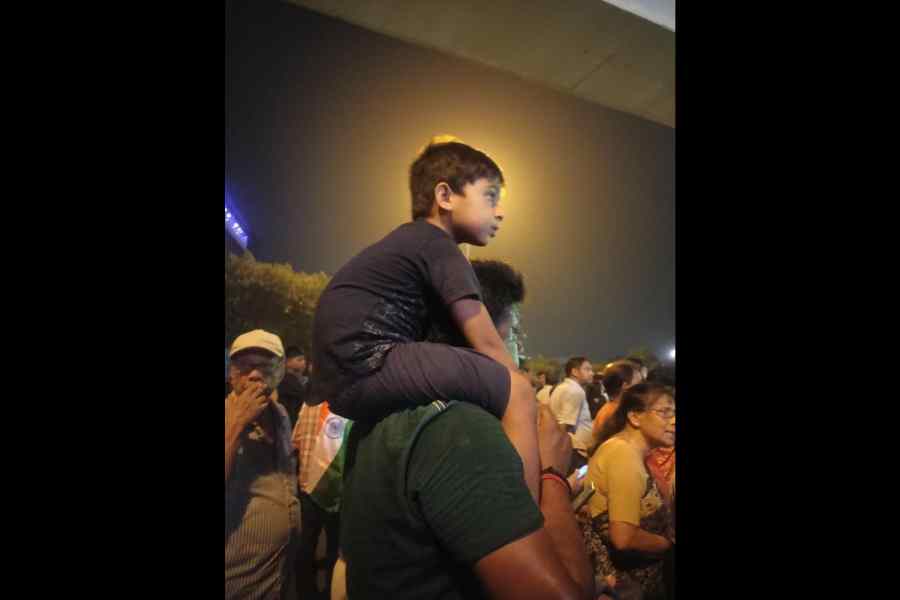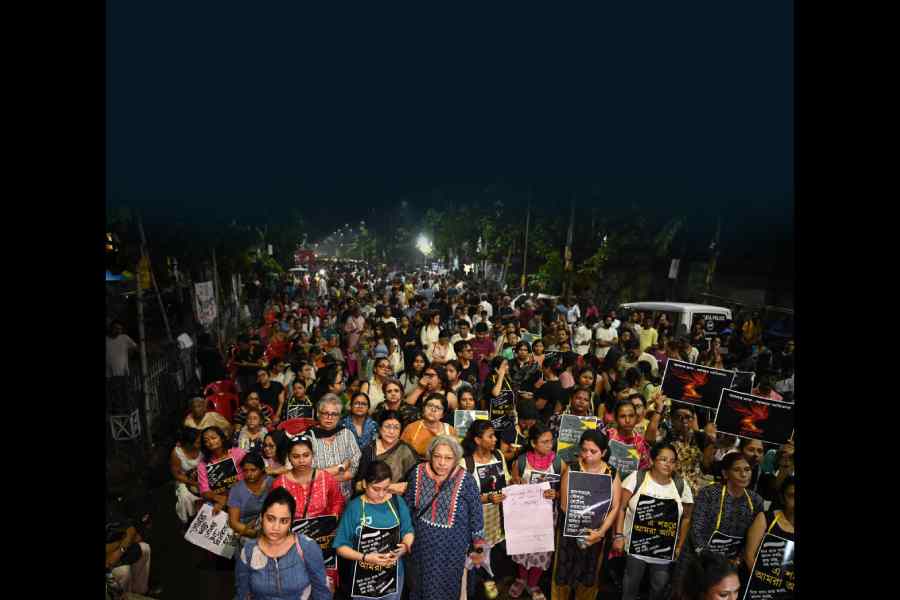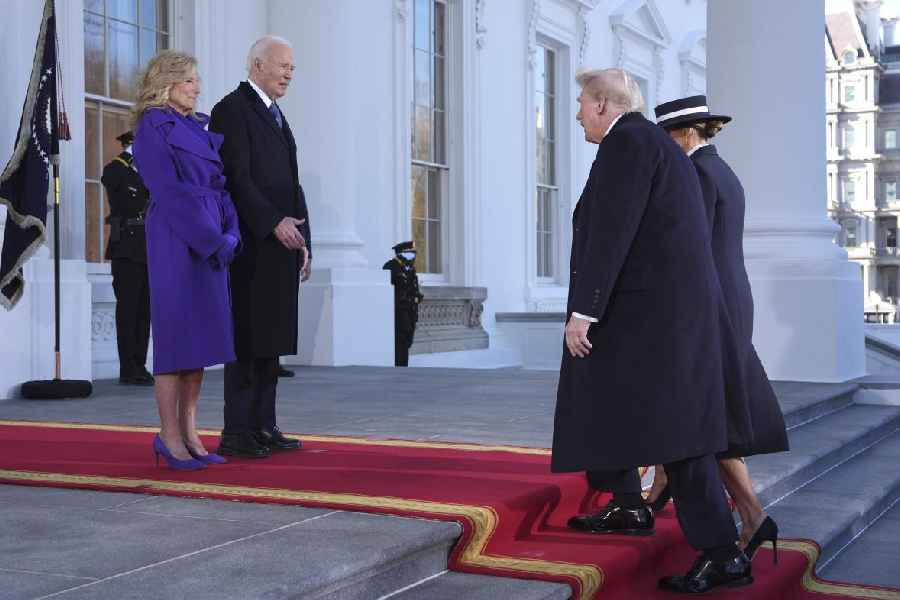At the stroke of the midnight hour, when the world slept, the women of Calcutta and the rest of Bengal awoke to life and freedom to reclaim for themselves justice and assert that they would not be cowed down by brutality.
The Tryst with Destiny speech, given 77 years ago by India’s first Prime Minister Jawaharlal Nehru, found a new meaning at Jadavpur, College Street, Academy of Fine Arts and many many other places in and around the city, where women “reclaimed the night”. At the stroke of the midnight hour, the marchers ushered in Independence Day by singing the national anthem.
The trigger for the campaign was the horrific rape and murder of a young doctor at RG Kar Medical College and Hospital last Friday. But in reality, the women who came out on the streets declared war on bias, harassment and patriarchy that they face every day, at home, work, bus, Metro or on the streets.
What started as a social media campaign had an organic growth and transformed into a mass movement that the city had not seen, possibly ever. Rallies, small and big, were organised in hundreds of places.
Around 11pm, the gathering on the road in front of Jadavpur Coffee House had at least 500 people. By midnight, there were only bobbing heads walking through a drizzle that no one cared about.

A night that will forever remain etched in the child's memory Paromita Kar
Across the city, the women raised the slogan: “Amar ghar, tomar ghar/ RG Kar, RG Kar (my home, your home / RG Kar, RG Kar).”
“Shok noy, droho (Revolution, not grief),” read a giant banner near a makeshift stage at Jadavpur.
Homemakers Sangeeta Halder and Monalisa Guha came from Lake Market and Dhakuria.
“Every time a Kamduni happens, or a Hathras, there are a wave of protests. But the atrocities against women do not stop. We hope this changes with RG Kar,” said Guha.
Halder said “any brutality on a woman comes from a misplaced authority”.
“We face harassment almost on a daily basis. But not stepping out because of fear is not the solution,” she said.
Outside Academy actor-filmmaker Parambrata Chattopadhyay was among those who walked.
“I am here in solidarity with the women who have decided to take control of the night and I think it’s a symbolic movement for everyone, not just women but for every single citizen of the world, not just the country, to proclaim not reclaim that it is irrespective of the time of the day when it should be safe for any human being to be out on the streets irrespective of whether the person is man, woman, transgender or third gender.
“That makes it a bigger issue especially in a city like Calcutta, known as one of the safer places in the country for women and in general. I don’t mean to be derogatory towards other cities but this is not a Delhi or a Gurgaon or a Kathua.... This is a city called Calcutta. Something like this in a city like this raises a lot of alarm and I think it is important this alarm makes us come to the streets and express solidarity.”
What the gatherings lacked in organisational skill that political rallies in this city are known for, they made up with spontaneity.
Every time a speaker shouted “Reclaim the street, reclaim the night”, the crowd roared back in unison.
Metro ran additional trains for people headed to the meetings. A Left-backed union of app-cab drivers said its members would be in their vehicles on the road through the night so people can go to the meetings and return home.
It was hard to miss the similarity with the protests against the citizenship trident that rocked the country between December 2019 and March 2020, and also had women at the forefront.
Rakhi Chatterjee, a corporate communications professional, was at Howrah’s Sarat Sadan. So was Kakoli Ghosh, who cooks at Chatterjee’s Howrah home.
Residents of gated communities were not to be left behind. Close to 200 residents of Utalika Condoville assembled in front of the Mukundapur Bazar Clock Tower and took part in a candlelight march till the Ruby intersection where they joined another gathering.
Conch shells rang out on the Ruby intersection on EM Bypass where hundreds stepped out of their homes and housing complexes to take part in the march.
Thousands of torches lit up the night.
At the Gariahat intersection, cries of “We want justice” rang out as hundreds of men and women walked towards the Ruby intersection on EM Bypass in the rain.
In Salt Lake, CD block resident Anupama Chakraborty came to the City Centre gathering with her two granddaughters, aged 11 and 13.
“This is something that has rocked the country. The girl who was brutalised was an on-duty doctor. If the government cannot ensure the safety of women at a government-run institution I think it is high time that they need to rethink and do the needful,” said Chakraborty, a retired state government employee.











